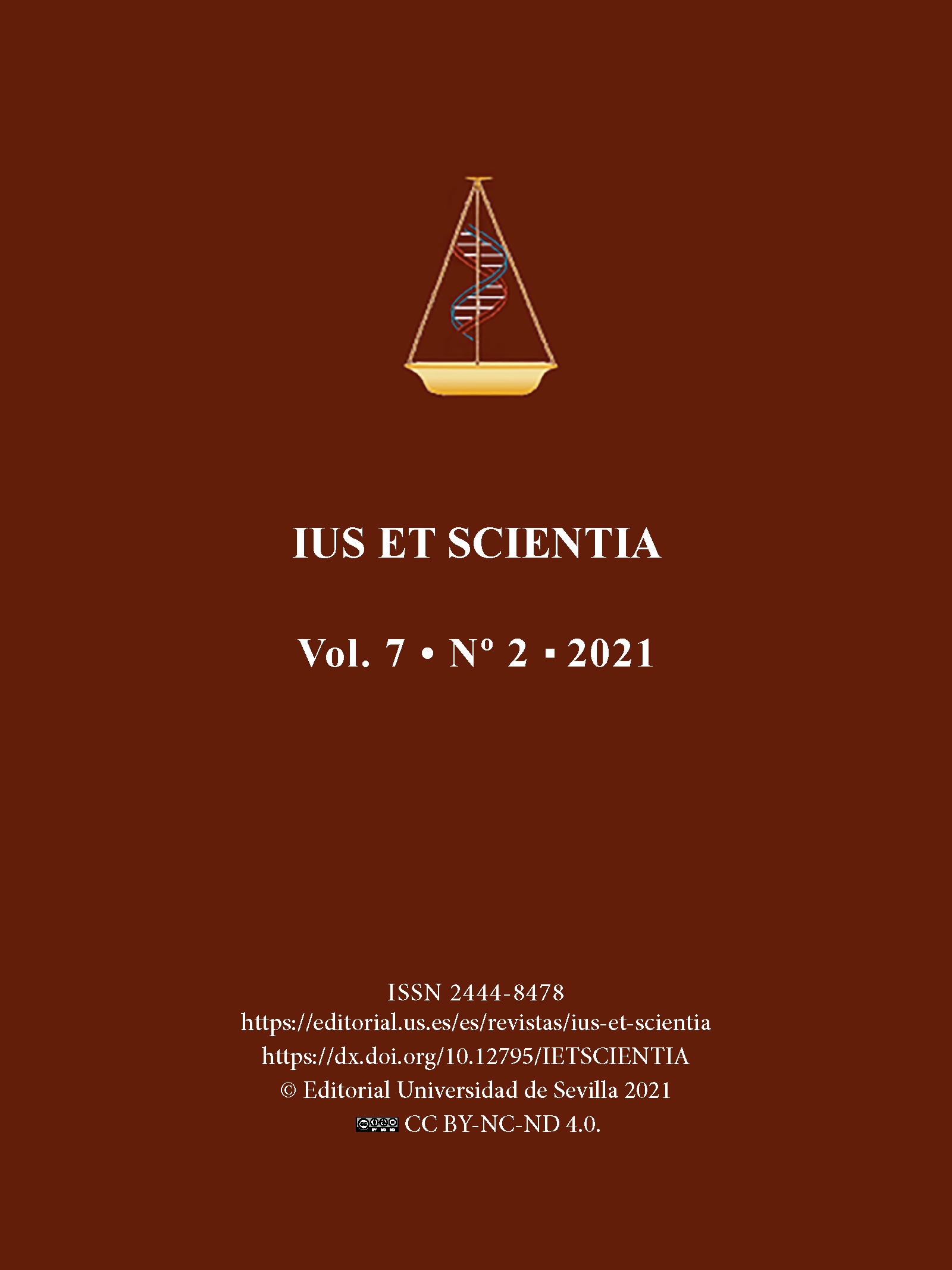The artificial intelligence reset in the public health service
DOI:
https://doi.org/10.12795/IETSCIENTIA.2021.i01.17Keywords:
artificial intelligence, health, Public service, Digital transformation, Covid-19Abstract
Covid-19 disrupted our social and health systems. For that reason, we need to think about what healthcare system changes will be needed to create a more inclusive, resilient, and sustainable world going forward. This analysis explores the root causes behind a new age of technology where artificial intelligence could be the key to a great reset. Furthermore, we are studied why artificial intelligence is an opportunity to lead a need for a public health service reset beyond the pandemic crisis.
Downloads
References
Agrawal, A., Gans, J., Goldfarb, A. (2018), Prediction machines. The Simple Economics of Artificial Intelligence, Hardvard Business Review Press, Boston.
Alfonseca, M. (2014), ¿Basta la prueba de Turing para definir la ‘inteligencia artifciial’?, ScientiaetFides, 2, (2), 129-134.
Andrés Segovia, B. (2020), “Inteligencia artificial en el sector público”, Tribuna del Instituto de Derecho Iberoamericano. Véase en la web: https://idibe.org/tribuna/inteligencia-artificial-sector-publico-ante-covid-19/. Fecha de última consulta: 02.05.2021.
Andrés Segovia, B. (2020), La convergencia de las telecomunicaciones, medios de comunicación y Tecnologías de la Información, Aranzadi, Navarra.
Barrio Andrés, M. (2020), Manual de Derecho Digital, pp. 58-64, Tirant Lo Blanch, Valencia.
Booth, Jeff (2020), The Price of tomorrow, pp. 128-136, Stanley Press, Canadian.
De La Cruz Ferrer, J. (2020), Regulación de la sanidad. Motivos, modelos y concesiones, Editorial Dykinson, Madrid, ya se anuncia y se esboza la realidad y principal problema del sector sanitario en España.
De La Sierra Morón, S. (2020), “Inteligencia artificial y justicia administrativa: una aproximación desde la teoría del control de la Administración pública”, Revista General de Derecho Administrativo, 53.
Garrido Falla, F. (1980), “Artículo 43”. En Garrido Falla, F., Comentario a la Constitución, pp. 500-503, Civitas, Madrid.
Hinton, G.E. (1992), “Redes neuronales que aprenden de la experiencia”, Investigación y ciencia, 194, 104-112.
Malaret I García, E. (2004), “Conclusiones”. En V Congreso Luso-Hispano de profesores de Derecho Administrativo titulado, La contratación pública en el horizonte de la integración europea, pp. 183-192, Instituto Nacional de Administración Pública, Madrid.
McCarthy, J. (2007), What is AI, Personal website (formal.stanford.edu/jmc/ index.html) last updated November 12.
McCarthy, J.; Minsky, M.; Rochester, N.; and Shannon, C. (1955), “A proposal for the Dartmouth Summer Research Project to Artificial Intelligence”, August 31. Disponible en https://ojs.aaai.org//index.php/aimagazine/article/view/1904. Fecha de última consulta: 30.04.2021.
Mena Roa, M. (2020), “La era de los gigantes tecnológicos”, Statista. Datos extraídos de la página web: https://es.statista.com/grafico/22728/empresas-con-mayor-capitalizacion-bursatil-del-mundo-en-2005-y-2020/. Fecha de última consulta: 02.05.2021.
Mena Roa, M. (2021), “Las empresas líderes en innovación a través del tiempo”, Statista. Véase en la página web: https://es.statista.com/grafico/24654/ranking-de-las-diez-empresas-mas-innovadoras-del-mundo-desde-2005/. Fecha de última consulta: 02.05.2021.
Rivas, P. (2020), Aprender a desaprender. Transformando la educación superior, p. 70, LID Editorial, Madrid.
Rodrigo Lara, M.B. (2021), “La libertad religiosa en España durante la Covid-19”. En Martínez-Torrón, J. y Rodrigo Lara, M.B., COVID-19 y libertad religiosa, pp. 119-144, Iustel, Madrid.
Russell, S. (2019), Human Compatible. Artificial Intelligence and the problem of control, Penguin Publishing Group, London.
Sarrión Esteve, J. (2021), “La protección de la salud, la vida y la integridad física en tiempos de pandemia en la doctrina constitucional. A propósito de la ATC 40/2020, de 20 de abril”, Actualidad Jurídica Iberoamericana, 14, 1026-1039.
Schwab, K. (2016), La cuarta revolución industrial, Penguin Random House Grupo Editorial, Barcelona.
Schwab, K. y Mallaret, T. (2020), Covid-19: El gran reinicio, pp. 169-170, Fórum Publishing, Ginebra.
Swade, D. (1993), “La computadora mecánica de Charles Babbage”, Investigación y ciencia, 199, 66-71.
Troncoso Reigada, A. (2010), La protección de datos personales. En busca del equilibrio, p. 1099, Tirant lo Blanch, Valencia.
Turing, A. M. (1959), “Computing Machinery and intelligence”, Mind a Quarterly Review of Psychology and Philosophy, Vol. LIX, 236, october, 433-460.
Published
How to Cite
Issue
Section
License
Those authors being published in this journal agree to the following terms:
- Authors retain their copyright and they will guarantee to the journal the right of first publication of their work, which will be simultaneously subject to license recognition by Creative Commons that allows others to share such work provided it is stated the author’s name and his first publishing in IUS ET SCIENTIA.
- Authors may take other non-exclusive distribution license agreements version of the published work (e.g. deposit in an institutional digital file or publish it in a monographic volume) provided it is stated the initial publication in this journal.
- It is allowed and encouraged that Author s disseminate their work via the Internet (e. g. institutional digital files or on their website) prior to and during the submission process, which can lead to interesting exchanges and to increase citation of the published work.
- Abstract 938
- pdf (Español (España)) 527
- html (Español (España)) 101





